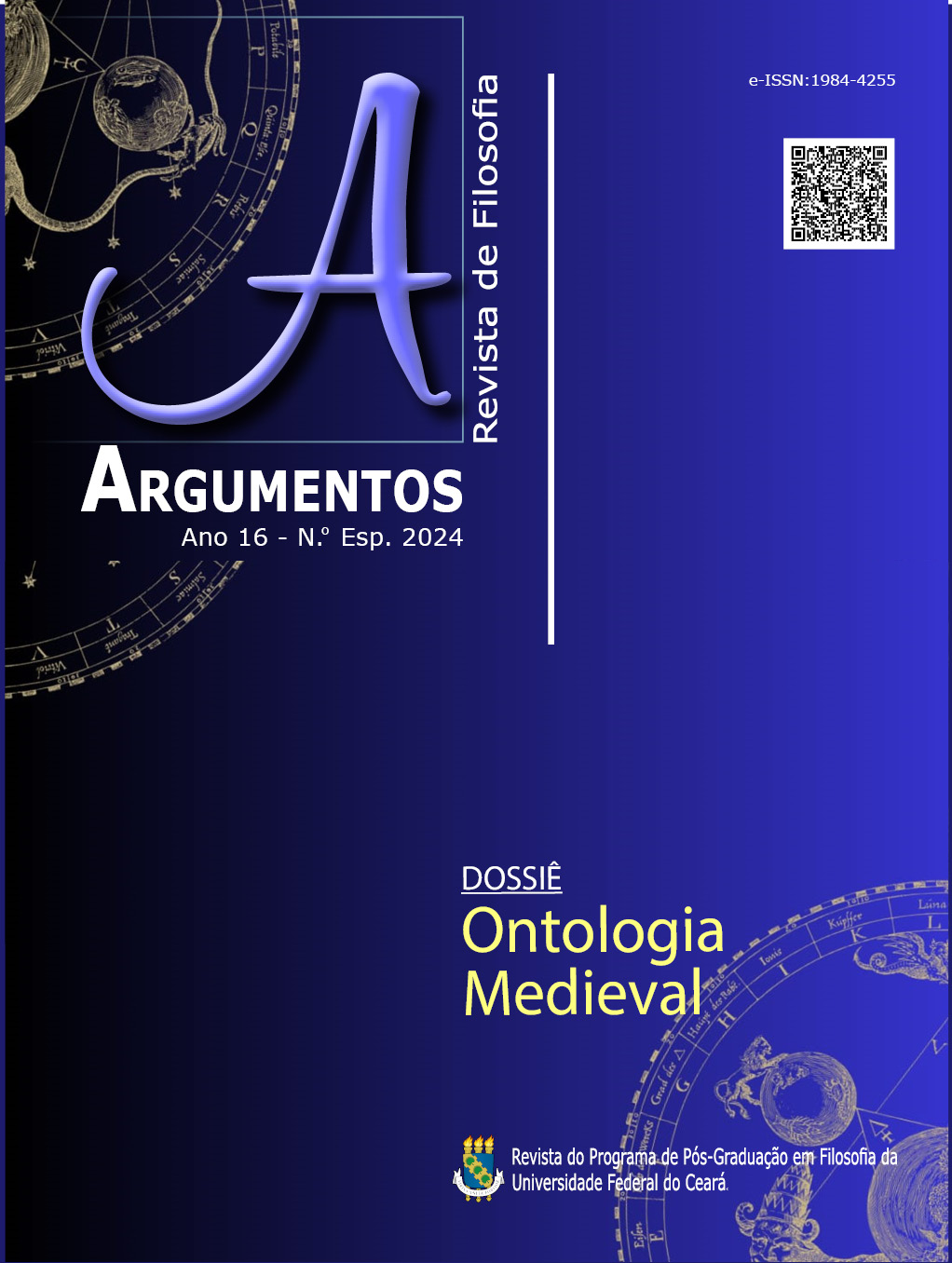Language and appropriation: on naming in Hannah Arendt and Carl Schmitt
Keywords:
Naming. Language. Appropriation. Hannah Arendt. Carl Schmitt.Abstract
The purpose of this article is to investigate the relationship between language and appropriation in Hannah Arendt’s and Carl Schmitt’s reflections on the question of naming. Considering that both emphasized the appropriative element underlying the link between language and the world, we start from Arendt’s definition according to which naming is the way through which human beings appropriate the events of reality and thus endow them with communicability, a mechanism that ensures the connection between the human mental activities that seek their meaning and the world of appearances in which they manifest themselves. In the first part of the text, we interpret Arendt’s analysis of these relationships in order to highlight the understanding of language present in her work, especially in The Human Condition (1958) and The Life of the Mind (1978). In the second part, in order to clarify the appropriative meaning of naming, we mobilize Carl Schmitt’s reading developed in the essay “Nomos – Nahme – Name” (1959). According to the German thinker, the
emphasis on nomos as a fundamental term in Western political and legal vocabulary makes it possible to uncover a particular structure of language and thought, the core of which radiates meaning through events originating in the “taking” or “appropriation” (Nahme) encompassed by the very acts of naming. Considering the confluence between these approaches, we conclude that the capturing of events in language through naming has undeniably practical implications, which refer us to decisive processes in the domains of law and politics.
References
ARENDT, H. A condição humana. Tradução de R. Raposo. Revisão técnica de A. Correia. 13. ed. rev. Rio de Janeiro: Forense Universitária, 2016.
ARENDT, H. A vida do espírito: o pensar, o querer, o julgar. Tradução de C. A. R. de Almeida, A. Abranches e H. Franco Martins. 6. ed. Rio de Janeiro: Civilização Brasileira, 2017.
ARENDT, H. Origens do totalitarismo: antissemitismo, imperialismo, totalitarismo. Tradução de R. Raposo. São Paulo: Companhia das Letras, 1998.
ARENDT, H. The Life of The Mind. 2.v. New York: Harcourt Brace Jovanovich, 1981.
ARISTÓTELES. Da interpretação. Tradução de J. V. Teixeira da Mata. São Paulo: Editora Unesp, 2013.
ARISTÓTELES. De anima. Tradução de M. C. G. dos Reis. São Paulo: Ed. 34, 2006.
ARISTÓTELES. Política. Tradução de A. Amaral e C. Gomes. Lisboa: Vega, 1998.
ARROSI, J. P. Nómos ou a emergência da ordem: fragmentos de uma história das formas jurídicas. 2021. 181f. Tese (Doutorado em Direito) – Universidade Federal do Paraná, Curitiba, 2021.
BENJAMIN, W. Sobre a origem da linguagem em geral e sobre a linguagem do homem. Tradução de S. Kampff Lages. In: BENJAMIN, W. Escritos sobre mito e linguagem. São Paulo: Duas Cidades; Editora 34, 2011. p. 49-73.
FOUCAULT, M. História da sexualidade I: a vontade de saber. Tradução de M. T. da Costa Albuquerque e J. A. Guilhon Albuquerque. 19. ed. Rio de Janeiro: Graal, 2009.
PAPA, E. S. Linguaggio originario e pensiero dello spazio in Carl Schmitt. Rivista di Filosofia, v. CVIX, n. 2, ago. 2018. p. 245-264.
SCHMITT, C. Nehmen / Teilen / Weiden. In: SCHMITT, C. Verfassungsrechtliche Aufsätze aus den Jahren 1924 – 1954. Materialien zu einer Verfassungslehre. 4. Auflage. Berlin: Duncker & Humblot, 2003. p. 489-504.
SCHMITT, C. Nomos – Nahme – Name. In: SCHMITT, C. Staat, Großraum, Nomos: Arbeiten aus den Jahren 1916 – 1969. Berlin: Duncker & Humblot, 1995. p. 573-591.
SCHMITT, C. O nomos da Terra no direito das gentes do jus publicum europaeum. Tradução de A. Franco de Sá. Rio de Janeiro: Contraponto; Ed. PUC-Rio, 2014.
WEIL, S. Espera de Deus: cartas escritas de 19 de janeiro a 26 de maio de 1942. Tradução de Karin Andrea de Guise. Petrópolis: Vozes, 2019.
Downloads
Published
Issue
Section
License
Copyright (c) 2024 Roan Costa Cordeiro

This work is licensed under a Creative Commons Attribution 4.0 International License.
Argumentos magazine is licensed under an International Creative Commons Attribution License.
The Magazine uses CC BY inclusion
1) The authors retain the copyright granted to the magazine or the right to initial publication, with the work regularly licensed under the Creative Commons Attribution, which allows the sharing of the work with acknowledgment of authorship and initial publication in this magazine.
2) The authors are authorized to contract additional applicable contracts, for non-exclusive distribution of the version of the work published in this journal (for example, publication in the institutional repository or as a chapter of the book), recognition of authorship and initial publication in this journal.
3) Authors are authorized and encourage to publish and distribute their work online (for example, in institutional repositories or on their personal pages) at any time before or during the editorial process, as they can generate productive changes, as well as increase the impact and reference of published work.




.jpg)










._._3.png)
1.jpg)
._._._.png)
